US News
Should America’s Marketplace of Ideas Be Scrapped?
It’s easy to see why the so-called marketplace of ideas has come under attack in today’s U.S. The online marketplace in particular is open to odious views and falsehoods ranging from deep fakes to hate speech to loony medical claims. It doesn’t reliably identify what’s true or false. It’s distorted by informational silos and cognitive biases: we tend to believe irrational things because our peer group believes them and because they align with our earlier viewpoints. It’s run by tech oligarchs. Not surprisingly, a growing number of Americans regard today’s ideas marketplace as a source of the nation’s problems rather than part of the solution.
They are profoundly and dangerously wrong. Neither the Framers of the First Amendment nor its modern judicial defenders would claim that free speech is never harmful or that a market always gets it right. Hate speech hurts—lies mislead—and people do sometimes act mistakenly and irrationally. But the greater harm lies in trying to repress such speech—by setting up an idealized, right-thinking elite to monitor what unwashed commonfolk can say and hear.
With staggering condescension, censorship’s backers see the public as subsisting in a kind of societal Petri dish in which they can remove information and ideas and prevent their spread. Those within the dish are “ordinary people”; the lab operators are select, extraordinary people who are not subject to the same distortive forces that misshape the views of those within the dish. Contrary to all historical experience, opponents of free speech imagine that censors will act selflessly to hold themselves accountable and advance the public interest, not their own self-interest.
This conceit is naive. Censors are subject to the same pressures and distortions that beset everyone else—and to additional pressures to keep their jobs, please political superiors, advance their careers, avoid organizational embarrassment, and myriad other biases that plague many bureaucracies. Deference might be justified if these institutions could lay claim to oracular certitude, but when it comes to error correction, their track records leave little to commend them.
Over and over, the government’s oracles have themselves been a source of irrationality, and falsehood. In August 2021, President Biden himself “bluntly affirmed” to the New York Times Editorial Board that Americans had been lied to concerning the course of the war. “Yes. Yeah,” he told it. The government’s voluminous lies about the Vietnam war were laid bare in the Pentagon Papers. Fictitious “weapons of mass destruction” in Iraq led to a pointless war that took hundreds of thousands of lives. Why would anyone trust these sages to operate a new Ministry of Truth?
Having just ousted their colonial rulers, the Framers of the First Amendment understood insiders’ mentality. They understood that iconoclasts, naysayers, and boat-rockers are necessary to keep political insiders honest. Safeguarding dissent, they knew, was essential to ensuring accountability and protecting pluralism. They believed that discord within the body politic, as within the government, was inescapable. James Madison wrote that the only way to eliminate division would be to eliminate the oxygen of liberty that fueled it, a remedy “worse than the disease.”
This is why the First Amendment—which Madison authored—allows the government to suppress free speech only in an emergency. If there is time to expose falsehood and fallacies through discussion, Justice Louis Brandeis wrote, the “remedy to be applied is more speech, not enforced silence,” for the suppression of free speech “menaces stable government.”
Brandeis was right. Censorship turns the silenced into martyrs. It invests their messages—which inevitably slip through—with a “forbidden fruit” fascination. It drives dangerous ideologies underground where they’re shielded from rebuttal. It stifles scientific progress and political reform. It discredits the censors and fosters distrust and division. And it robs oppressed groups of the strongest tool to break their chains. Suffragettes, blacks, and LGBT activists all relied on free speech to challenge unjust social orthodoxies. Without free speech, John Lewis said, the civil rights movement would have been a “bird without wings.” Who seriously can believe that censorship might now benefit the weak more than the powerful?
It's therefore ironic that promoters of democracy contend that censorship is necessary to preserve it. The opposite is true. Democracy and the marketplace of ideas rest on the same premise: that individuals are better able than censorious overlords to decide what views to adopt and what’s in their own best interests. To reject that premise is to reject both democracy and free speech.
The ideas marketplace, it turns out, is more than a forum where ideas are exchanged—it’s a factory. It produces. In hearing opposing views, self-governing speakers and listeners create new ideas for reconciling disagreements. It’s a consensus-building mechanism, far preferable to the alternative of compelled or artificially-induced orthodoxy.
President Kennedy said that those who make peaceful evolution impossible make violent revolution inevitable. America’s marketplace of ideas makes peaceful evolution possible. The surest way to spark violent revolution in our turbulent country is to suppress the marketplace of ideas.
-
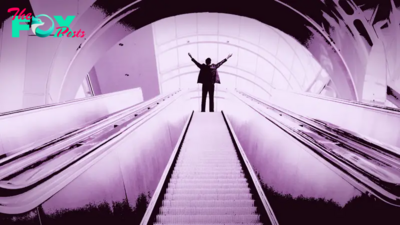
 US News1d ago
US News1d agoHow TIME and Statista Determined the Best Companies and Colleges for Future Leaders for 2025
-

 US News1d ago
US News1d agoWorld’s Best Brands – United States
-
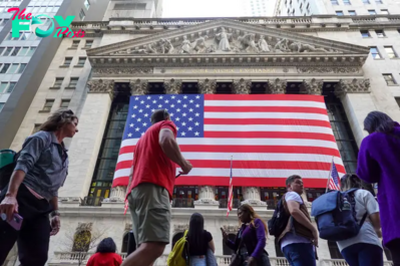
 US News2d ago
US News2d agoFlorida Man Arrested and Charged With Planning to Bomb the New York Stock Exchange
-
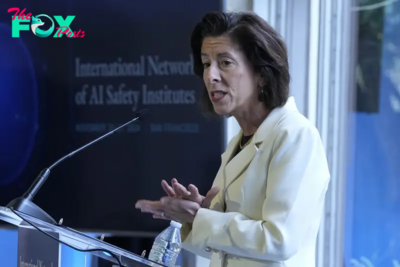
 US News2d ago
US News2d agoU.S. Gathers Global Group to Tackle AI Safety Amid Growing National Security Concerns
-
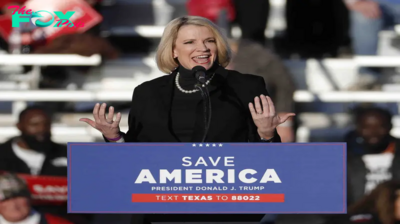
 US News3d ago
US News3d agoTexas Offers Trump Land on U.S.-Mexico Border for Potential Mass Deportations
-

 US News3d ago
US News3d ago4B Is Not the Winning Strategy to Resist the Patriarchy People Think It Is
-

 US News3d ago
US News3d ago‘Bomb Cyclone’ Threatens Northern California and Pacific Northwest
-
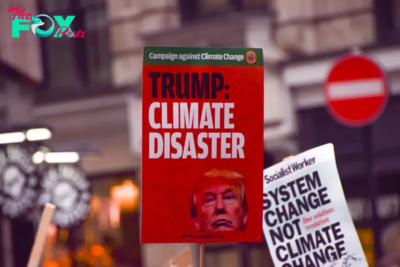
 US News3d ago
US News3d agoClimate Action in Trump 2.0

















